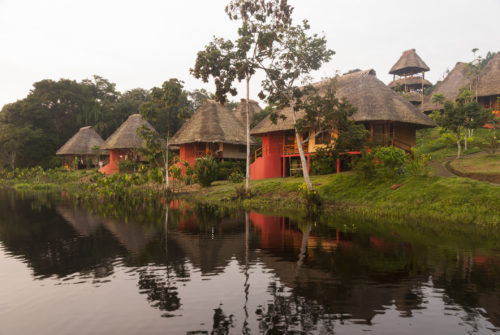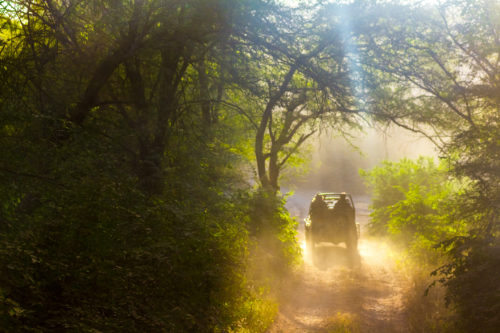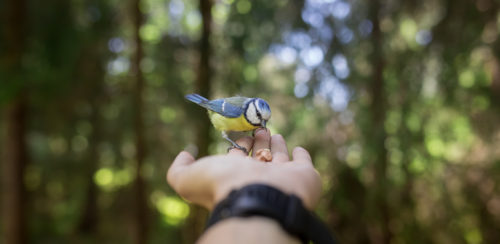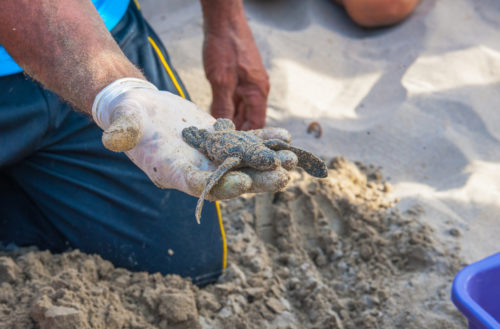Wildlife Conservation: How To Do Your Bit As A Travel Enthusiast?
From the mystical jungles of India to the ethereal wilderness of the Africa, there is so much wonder in the rawest form of nature. Unfortunately, a lot of these landscapes and regions are threatened by overpopulation and poaching, driving many species and ecosystems to the brink of extinction.
Addressing the sensitivity of animals and the environment, conservation efforts are being carried out across the country. In fact, December 4th is observed as Wildlife Conservation Day to raise awareness and contribute to the protection of species at risk. So, as a traveller, besides being open to new adventures, it also helps to make mindful travel choices, and when possible, make wildlife protection a part of your itinerary. Here’s how you can contribute to conservation efforts on your next vacation.
Choose Thoughtful Lodging

It’s one thing to experience adrenaline-fueled safaris and another to soak in the tender wilderness of the night sky as you listen to owls hoot and crickets chirp around you. Choosing to stay in or around conservation areas, not only lets you experience a raw and organic atmosphere but helps contribute revenue to these places, providing an impetus to local businesses that are the center of conservation efforts. When your lodging choices can usher a positive impact on nature, your vacation becomes more meaningful.
Some well-known conservation areas include Annamalai in Tamil Nadu, Garo Hills in Meghalaya and Satpura Tiger Reserve in Madhya Pradesh. And since many reserves are located in dense mountainous regions, you’re bound to enjoy not only your destination but the drive there as well. Your Ford EcoSport’s Electric Stability Control and Hill Launch Assist features will make navigating uphill climbs and sharp bends easy and safe. And convenience features, like auto-dimming mirrors, auto headlamps and voice command climate control will make the drive comfortable as well.
Visit National Parks and Sanctuaries

One of the most fascinating things about India is that it is home to many diverse national parks and sanctuaries that draw the attention of nature-lovers from not just the country but around the globe. World-renowned wildlife parks like Jim Corbett, Ranthambore National park, Sundarbans National Park and Gir National Park offer an exquisite peek at the animal kingdom in all its glory. Nestled amidst lush greenery, these parks offer a range of exciting safaris on which, if you’re lucky, you could spot tigers, one-horned rhinoceros, Asiatic lions and other wild beasts in their natural habitat.
Again, by visiting such places, you can help them generate revenue to continue and grow their efforts in protecting some of the most vulnerable places on the planet. It is equally important that you abide by their rules when you do visit such places. And if you follow some basic tips, you can even increase your chances of a sighting.
Most national parks are located away from cities and involve drives through tough terrains and steep climbs. And while you won’t be able to drive your Ford Endeavour on the actual safari, you can be sure of conquering whatever road appears before you with its effective Terrain Management System. Its Bi-LED headlamps also ensure better light penetration and visibility, which is helpful when driving through reserves or conservation areas at night.
Click and Share

Social media has a profound effect of broadening horizons beyond the well-known tourist spots to lesser-known, yet equally interesting marvels across the country. So, on your next trip into the depths of nature, make sure to take enough pictures and videos. And don’t hesitate to share riveting details of your experience and necessary information about the place as a review or a blog post. People often want to explore offbeat adventure ideas, and you might be instrumental in helping them #DiscoverMore about our world.
Additionally, your actions could probably help educate those who aren’t aware of the need to protect and conserve wildlife and encourage them to do their bit as well.
A Ripple Effect

Once you’ve witnessed some of the world’s most incredible species and learnt about the risks to their existence, you might start to become more conscious of how you live. Dwelling in the bounties of nature and sharing their home will eventually increase your awareness about the challenges in biodiversity conservation. The good news is that there are many ways in which you can do your bit for these ecosystems. For instance, re-evaluating your consumption habits so that it has a positive impact on the environment, or you can enrol in volunteering programs for animal welfare and adopt animal-friendly practices.
Experiencing the diverse wildlife our world offers can instil an appreciation for nature and pushes people to be kinder to the environment. So, the next time you plan a vacation, make sure your choices like accommodation and activities have a positive impact on wildlife and the world.
Subscribe to our newsletter
Subscribe to our newsletter to stay upto date with latest news, offers and much more



